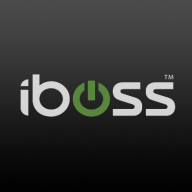


Cisco Umbrella and Prisma Access by Palo Alto Networks are leading competitors in the network security solutions market. While Cisco Umbrella is known for its DNS-based protection and cost-effectiveness, Prisma Access stands out with its zero-trust architecture and extensive integration capabilities, offering robust security solutions.
Features: Cisco Umbrella offers DNS-based protection, web content filtering, and a simple setup, ensuring threats are managed before they arrive at endpoints. Prisma Access provides a zero-trust architecture, integration capabilities, and supports a wide range of applications, catering to diverse security needs.
Room for Improvement: Cisco Umbrella users desire more granular analytics, enhanced SIEM integration, and additional security features like malware protection and intrusion prevention. Prisma Access users are looking to improve pricing, integration with third-party products, and user interface enhancements. It also faces issues with global connectivity and complex configurations.
Ease of Deployment and Customer Service: Cisco Umbrella is praised for its quick deployment thanks to its cloud-native design, although it sometimes experiences response delays in customer support. Prisma Access, while providing comprehensive security, is challenged by complex deployment, especially in hybrid setups, and has been noted for response delays in support service as well.
Pricing and ROI: Cisco Umbrella is seen as more cost-effective, especially for companies seeking entry-level cloud-based DNS security solutions, providing significant ROI in threat management. Prisma Access, considered on the expensive side due to its extensive capabilities, offers flexible pricing models despite the higher cost. Both solutions are evaluated based on specific needs and budget limitations to assess ROI.
| Product | Market Share (%) |
|---|---|
| Cisco Umbrella | 12.8% |
| Prisma Access by Palo Alto Networks | 8.8% |
| iboss | 2.5% |
| Other | 75.9% |

| Company Size | Count |
|---|---|
| Small Business | 6 |
| Midsize Enterprise | 6 |
| Large Enterprise | 6 |
| Company Size | Count |
|---|---|
| Small Business | 50 |
| Midsize Enterprise | 30 |
| Large Enterprise | 51 |
| Company Size | Count |
|---|---|
| Small Business | 24 |
| Midsize Enterprise | 21 |
| Large Enterprise | 27 |
Iboss offers a comprehensive cloud-based security platform valued for its scalability and autonomous features, ensuring robust security with easy deployment and management capabilities.
Renowned for its robust security architecture, Iboss integrates seamlessly within diverse networks, delivering efficient granular filtering and advanced content categorization. Its single pane of glass console provides ease of management, allowing rapid scalability suitable for rapidly deploying environments. Operates in BYOD setups due to inline filtering without device installation. Integration with cloud-based applications enhances user control, and features like SASE, SSL inspection, and ChatGPT risk protection stand as highlights. Despite its strengths, users have pointed out areas for enhancement like direct navigation in reports, SSL decryption, and better cloud integration while having room to improve data loss prevention.
What are the most important features of Iboss?The usage of Iboss spans educational institutions, specifically K-12, to enforce internet policies, protect data, and support remote work environments. It provides web filtering and security frameworks to ensure safe browsing. Its platform-as-a-service model offers flexibility for both cloud-based and on-premises requirements, integrating seamlessly to deliver enhanced security features suitable for various deployment needs including zero trust, CASB, and network security for work-from-home setups.
Cisco Umbrella provides fast-deploying DNS-layer security with powerful threat protection capabilities. Trusted by over 30,000 entities, it ranks highly in DNS security and effectively supports secure remote work environments.
Cisco Umbrella offers comprehensive DNS security, web filtering, and ease of use, enhancing network security through robust threat protection and malware prevention. It processes over 600 billion requests daily, making it a leader in its field. The seamless integration with existing infrastructures and cloud-based nature makes it suitable for remote and distributed work environments, ensuring consistent security throughout. Management is streamlined with a single-pane interface that simplifies administration, while in-depth reporting capabilities provide valuable insights for continuous monitoring.
What are the key features of Cisco Umbrella?Cisco Umbrella is widely adopted in industries requiring advanced DNS-level security to counteract malware, phishing, and cyber threats. Its ability to monitor and protect remote and roaming employees makes it an attractive option for sectors highly dependent on cloud services. By managing DNS queries and blocking harmful sites, Cisco Umbrella enhances cybersecurity across networks, providing an added layer of protection for businesses worldwide.
Prisma Access by Palo Alto Networks provides consistent security for all users and applications across your remote networks. Prisma Access grants users safe access to the cloud and data center applications and the internet as well. In addition, the solution combines all of your security and networking capabilities into a single cloud-delivered platform, enabling flexible hybrid workforces.
Prisma Access can be managed two ways:
Prisma Access delivers both networking and security services, including:
Prisma Access by Palo Alto Networks Features
Prisma Access by Palo Alto Networks has many valuable key features including: App-ID, User-ID, Device-ID, SSL Decryption, Dynamic User Group (DUG) Monitoring, AI/ML-Based Detection, IoT Security, Reporting, URL Filtering, Enterprise Data Loss Prevention (DLP), Digital Experience Monitoring (DEM)*, Logging, Policy Automation, Intrusion Prevention System (IPS), and many more.
Prisma Access by Palo Alto Networks Benefits
Some of the benefits of using Prisma Access by Palo Alto Networks include:
Reviews from Real Users
Below are some reviews and helpful feedback written by Microsoft Azure Synapse Analytics
users who are currently using the solution.
PeerSpot user Partha D., Global Network Tech Lead at a computer software company, speaks about his experience using the product, saying, "It protects all app traffic so that users can gain access to all apps. Unlike other solutions that only work from ports 80 and 443, which are predominantly for web traffic, Prisma Access covers all protocols and works on all traffic patterns... The most sophisticated attacks can arise from sources that are not behind 80/443."
Tejas J., a Sr. Cloud Security Architect at a computer software company, mentions that "it is geographically dispersed, and it sits on top of Google and AWS platforms. Therefore, you don't face the standard issues, such as latency or bandwidth issues, that you usually face in the case of on-prem data centers.”
Another PeerSpot reviewer, Max I., Associate Director at Cognizant, comments that "Security is absolutely spot-on, really top-notch. It's the result of all the components that come together, such as the HIP [Host Information Profile] and components like Forcepoint, providing end-user content inspection, and antivirus. It incorporates DLP features and that's fantastic because Prisma Access makes sure that all of the essential prerequisites are in place before a user can log in or can be tunneled into."
We monitor all Secure Web Gateways (SWG) reviews to prevent fraudulent reviews and keep review quality high. We do not post reviews by company employees or direct competitors. We validate each review for authenticity via cross-reference with LinkedIn, and personal follow-up with the reviewer when necessary.